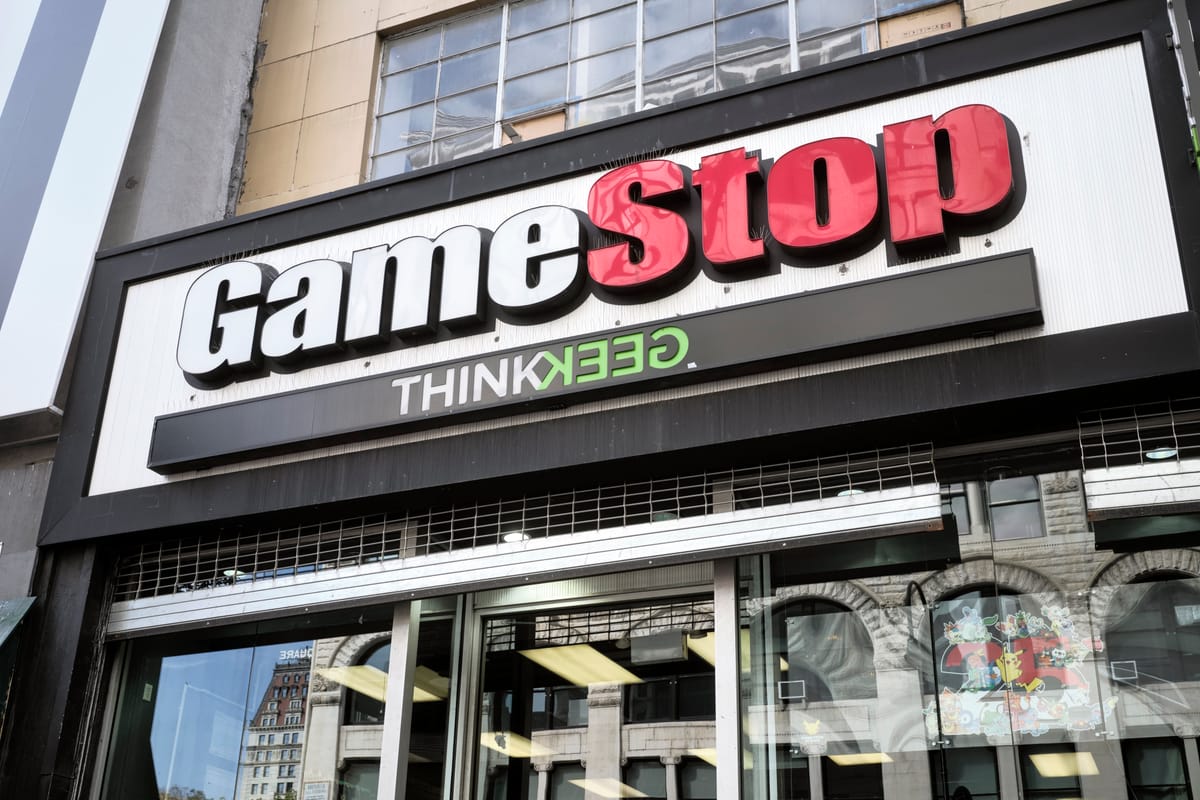GameStop CEO Unveils Radical Vision: Company's Future Lies Beyond Gaming
GameStop's chief executive has made a stunning declaration that's sending shockwaves through the retail and gaming industries: the iconic video game retailer's future success won't come from games at all. This bold pivot represents one of the most dramatic corporate transformations in recent retail history.
The End of an Era for Gaming Retail
For over three decades, GameStop has been synonymous with video game retail, serving as the go-to destination for millions of gamers seeking the latest releases, trade-ins, and gaming accessories. However, the company's leadership is now signaling a complete departure from this identity.
The announcement comes as GameStop continues to grapple with the fundamental shifts in how consumers purchase and consume video games. Digital downloads now account for over 80% of game sales, while subscription services like Xbox Game Pass and PlayStation Plus have revolutionized game access models. Physical game sales, GameStop's traditional bread and butter, have declined precipitously year over year.
Digital Transformation: More Than Just Buzzwords
GameStop's pivot appears centered on emerging technologies and digital assets. The company has been heavily investing in NFT marketplaces, blockchain technology, and digital collectibles – areas that CEO Ryan Cohen believes represent the future of digital ownership and commerce.
The retailer has already launched its NFT marketplace and partnered with various blockchain gaming companies. Early metrics suggest mixed results, with trading volumes fluctuating significantly based on broader cryptocurrency market conditions. However, the company remains committed to this digital-first approach.
The Physical Retail Challenge
Traditional brick-and-mortar gaming retail faces unprecedented challenges. Major competitors like Best Buy have scaled back their gaming floor space, while Amazon and digital storefronts continue to capture market share. GameStop's physical locations, once bustling hubs of gaming culture, have seen declining foot traffic and revenue per square foot.
The company has been experimenting with new retail concepts, including:
- Gaming lounges and esports venues
- Collectibles and pop culture merchandise expansion
- Technology repair services
- Cryptocurrency and digital asset education centers
These initiatives represent attempts to transform physical locations from simple retail spaces into community hubs and service centers.
Wall Street's Meme Stock Legacy
GameStop's transformation occurs against the backdrop of its notorious "meme stock" status. The company's stock price volatility, driven largely by retail investor enthusiasm rather than fundamental business metrics, has provided both opportunities and constraints for management.
While the elevated stock price enabled the company to raise capital and pay down debt, it also created enormous pressure to deliver revolutionary changes that justify investor expectations. The move away from traditional gaming retail can be viewed as both a necessary business evolution and a response to these market pressures.
Industry Reactions and Skepticism
Industry analysts remain divided on GameStop's new direction. Supporters argue that the company is positioning itself at the forefront of digital ownership and Web3 technologies. Critics contend that abandoning the company's core competency in gaming retail is premature and risky.
Major gaming publishers have expressed uncertainty about the partnership implications. If GameStop reduces its focus on traditional game sales, publishers may need to strengthen relationships with other retail partners or accelerate their direct-to-consumer strategies.
The Path Forward: Challenges and Opportunities
GameStop's transformation faces significant hurdles. The NFT and blockchain gaming markets remain nascent and volatile. Consumer adoption of digital collectibles has been slower than initially projected, and regulatory uncertainty surrounding cryptocurrencies and digital assets continues to create operational challenges.
However, early adopters in the digital ownership space could potentially capture significant market share as these technologies mature. GameStop's brand recognition and existing customer relationships provide advantages that pure-play blockchain companies lack.
Conclusion: A Make-or-Break Moment
GameStop's declaration that its future lies beyond gaming represents either visionary leadership or a desperate gamble. The company is betting its storied legacy on emerging technologies that remain largely unproven at scale.
For investors, customers, and industry observers, the coming quarters will reveal whether GameStop can successfully reinvent itself as a digital-first technology company or whether this pivot will mark the end of one of gaming's most recognizable brands. One thing is certain: the gaming retail landscape will never look the same.
